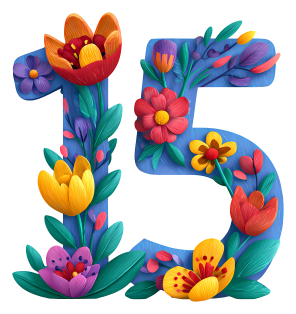We came, we read, we gushed.

A Day in September: The Battle of Antietam and the World It Left Behind by Stephen Budiansky (W.W. Norton & Company). Reviewed by Peggy Kurkowski. “There’s no shortage of hefty books about the Civil War’s Battle of Antietam, but Budiansky takes an admittedly unconventional approach that readers will find refreshing. Built around the experiences of nine individuals who emblemize an aspect of human existence ‘that was changed by what took place there,’ he elevates the story of Antietam far beyond the battlefield.”
Bite: An Incisive History of Teeth, from Hagfish to Humans by Bill Schutt (Algonquin Books). Reviewed by Gretchen Lida. “The chapter titles — including ‘Fangs a Lot,’ ‘A Painless Guide to Tooth Basics,’ and ‘A Man of Few Words…and Fewer Teeth’ — are clever and colloquial, too. Even those of us who compulsively brush at the mere mention of a cavity will find the banter delightful. While Bite is fun and the tone is perfectly approachable, however, it’s not plot-driven. The lack of a narrative arc is by far one of the biggest stumbling blocks of many popular-science books, and this one is no exception. Sure, gnarly information about lionfish venom is always welcome, but it may not be enough to inspire some readers to devour Bite cover to cover.”
Vertigo: The Rise and Fall of Weimar Germany by Harald Jähner (Basic Books). Reviewed by Mariko Hewer. “The brief Weimar Republic (1918-1933) is often given short shrift in coverage of 20th-century German history, wedged as it was between the monarchy of Wilhelm II and the emergence of the Third Reich. In the meticulously researched yet accessible Vertigo: The Rise and Fall of Weimar Germany, cultural journalist Harald Jähner seeks to remedy this, providing both a portrait of a surprisingly carefree time and chilling insights into the ascendance of Adolf Hitler and Nazism.”
The Wildes: A Novel in Five Acts by Louis Bayard (Algonquin Books). Reviewed by Mark Gamin. “The Wildes opens idyllically, with the family on holiday in Norfolk ‘avant la deluge,’ as one character later calls the happy time when Oscar was starting to make his flamboyant career in the theater and as a proponent of an aesthetic movement of sorts (for which he was mocked in the English magazine Punch and elsewhere). Enter Bosie, like a succubus. The dialogue here is what one would expect, full of Wildean wry, ironic apothegms. When Constance, still in the dark about Oscar’s ‘true nature,’ asks why he cannot invite a banker as a houseguest instead of the wan poets he apparently prefers, Bayard, pitch-perfect, has Oscar intone, ‘Bankers require no help. Indeed, they are the reason that poets do.’”
The Rising: The Twenty-Year Battle to Rebuild the World Trade Center by Larry Silverstein (Knopf). Reviewed by Larry Matthews. “The Rising is well written and easy to read. It opens a window into the dog-eat-dog world of commercial real estate in Manhattan, a world so unpalatable that I found myself wondering why anyone would want to be part of it. Then I remembered that billions of dollars are in play, and those with the stomach for the fight can make themselves very rich. In the bargain, if they’re lucky, they get to produce structures that lift our hearts and help us understand who we are.”
We’re Alone: Essays by Edwidge Danticat (Graywolf Press). Reviewed by Jennifer Bort Yacovissi. “Given the historical abuse, pillage, and general catastrophe inflicted by outsiders on Danticat’s home country — and onto members of its diaspora — it is this final interpretation that feels most apt. Danticat speaks here as though chatting with friends: warm, accessible, but also vibrating with a controlled rage that doesn’t need to be fully articulated because friends understand and share it. A compelling storyteller, Danticat weaves multiple threads through her essays of family, of separation and reunion, of Haitian culture and history, of writers and writing, and of calamities past, present, and yet to come.”
What Walks This Way: Discovering the Wildlife Around Us Through Their Tracks and Signs by Sharman Apt Russell (Columbia University Press). Reviewed by Julie Dunlap. “For readers who can at least imagine joy in distinguishing a red fox’s track from a grey’s or a mule deer’s from an elk’s, What Walks This Way is the perfect gentle introduction to the art of wildlife tracking. Yes, details matter, especially the geometry of mammalian feet and their patterns of locomotion. Paw anatomy, size, and gait differences between selected species are well clarified by illustrator and master tracker Kim Cabrera. But Russell isn’t attempting to write a how-to guide. Instead, she offers stories and memories that make tracking lessons meaningful, in lyrical prose exhorting us to ‘slow down, bend down, look, and really see.’”
Subscribe to our newsletter here, and follow us on Instagram, X, Facebook, Pinterest, and Bluesky. Advertise with us here.

